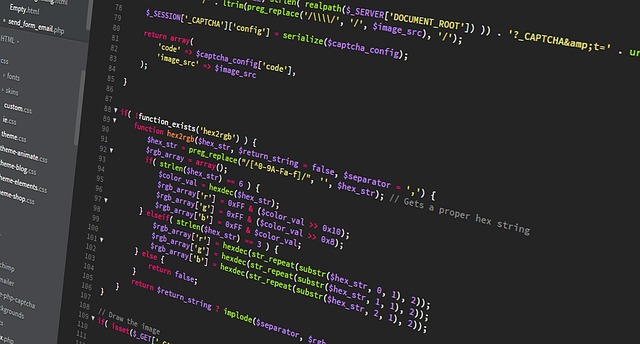The growth of the real estate industry in recent years has made it increasingly difficult to manage operations efficiently. Which ERP software is best suited for managing a real estate business while improving productivity and customer service? How does an enterprise resource planning system help streamline workflows and ensure a higher profit margin? What are the key features to look for when considering a real estate ERP solution?
These questions are of utmost importance for property owners looking to increase their bottom line. The demand for ERP solutions in the real estate sector is growing as businesses struggle to keep up with profit targets and customer service goals in rapidly changing market conditions. Studies have shown that the implementation of ERP solutions can improve time management, process automation, and workflow organization – all of which are essential in the ever-evolving real estate sector. To address this issue, many businesses are looking to incorporate Enterprise Resource Planning (ERP) software into their operations.
In this article you will learn about the importance of ERP solutions in the real estate industry, the benefits of using an ERP to streamline workflows, and the types of features to look for when choosing an ERP for your business. We will also discuss best practices for successful implementation and provide solutions to help you get started. By the end of the article, you should have a comprehensive understanding of how an ERP can help improve operations and the overall profitability of your real estate business.
Real estate professionals are well aware of the challenges associated with managing a business in this sector. The rise of technology has made it easier to track and monitor performance, but it can also be difficult to keep up with the ever-changing demands of clients and customers. An efficient ERP solution can help to alleviate these issues, by automating tasks and streamlining workflows. With the right system in place, businesses can increase their profitability and ensure that their customers are satisfied. So what ERP software should you be looking for to ensure your business is optimized and running efficiently?
Definitions
ERP software, or Enterprise Resource Planning, is a type of software that helps businesses automate tasks, manage business accounts, and better understand data. It provides a unified system for tracking and managing resources. In short, it’s a powerful tool businesses use to keep their financials in check. Real estate industry involves activities related to buying and selling of land. This includes buying and selling of residential and commercial properties as well as rental properties.
The best ERP software for the real estate industry is one that can automate mundane tasks such as book-keeping, financial reporting, cash flow management, and inventory tracking. It should provide a comprehensive set of features to easily manage many aspects of the business from one unified system. These features include customer relationship management, analytics and reporting, marketing automation, workflow management, document management, and more.
The ERP software should also include features specific to the real estate industry such as automated lease preparation, automated tenant management, eviction notices, and tenant payment tracking. It should also offer services like legal assistance, affordable housing compliance, real estate marketing, and tax planning.
A great ERP should also include mobility features for both employees and tenants. This would allow employees to access data remotely and tenants to keep track of their accounts. Finally, the software should be secure, stable, and reliable. The best ERP software for the real estate industry should be able to integrate with other existing systems and provide customization options.
Advantages of ERP Software for Real Estate
What is ERP Software?
Enterprise resource planning (ERP) software is a type of information technology system used to manage and integrate a range of processes, from support to planning, accounting, manufacturing and order processing. It is used by organizations to automate multiple processes with one integrated system, allowing for data to be managed at all levels. ERP software helps create real-time views of the enterprise, providing organizations with a bird’s eye view of the company.
Advantages of ERP software for Real Estate
ERP software is an essential tool for organizations in the real estate industry, allowing them to streamline their operations and offer the best possible service to customers. Here are some of the advantages of ERP software for real estate:
- Streamlined automated processes: ERP software helps automate processes and eliminate manual tasks, making operations faster and more efficient. This allows companies in the real estate industry to quickly and accurately process orders and provide customers with better service.
- Real-time visibility of data: ERP software allows companies to have an up-to-date view of their operations, giving them access to the data they need to make better decisions and optimize their operations.
- Reduced costs: By streamlining operations and reducing manual tasks, ERP software can significantly reduce costs, allowing companies to reinvest that savings into other areas of their business.
- Accurate data: ERP software also helps to ensure accuracy in data collection and reporting, as data is automatically updated in real time.
- Improved customer service: ERP software allows companies to offer better customer service, as processes are streamlined and automated, allowing for faster and more accurate service.
ERP for Different Functions in Real Estate
ERP software is tailored to the needs of the real estate industry, helping organizations manage different aspects of their operations, from customer service to marketing and sales. ERP software helps to manage customer contacts, track projects and campaigns, and manage sales and invoices. It also helps manage purchasing activities, keep track of inventory and store data related to property management. ERP software can also help manage financial processes, such as payroll and accounts receivable.
Overall, ERP software is an essential tool for organizations in the real estate industry, as it can help streamline operations and offer better service to customers. With ERP software, companies can have an up-to-date view of their operations and the data they need to make better decisions.
Key Features of ERP Software for Real Estate
Real Estate ERP Software Enhancements
ERP (Enterprise Resource Planning) software helps business of all sizes, including real estate, to streamline operations, improve processes and increase profitability. Although ERP software has long been used in larger corporations, small businesses are now also beginning to take advantage of the cost savings and other features that ERP systems have to offer. There are several key features to consider when selecting an ERP system for the real estate industry.
Accounting & Financials
Accounting and financials have always been a key component in ERP software used for the real estate industry. Tracking expenses, generating invoices, and reconciling banking and credit card transactions are just some of the typical features many accounting packages contain. However, ERP software now offers additional features such as risk assessment capabilities, fraud detection alerts and even option to provide clients with access to accounts on demand.
Property Management
Property management is another key feature in real estate ERP systems. ERP programs today can automate many of the common property management tasks, such as tracking tenant information, maintenance requests, and lease/rental agreements. Additionally, ERP software should also be able to track website visits, generate marketing reports and handle data analysis for property management decisions.
ERP software can be extremely beneficial for real estate businesses of all sizes. With the right software, businesses can maximize profitability, improve processes, and more. Although the key features of real estate ERP systems can vary depending on the specific needs of an organization, they should always include accounting, financials, and property management capabilities. With the right software in place, real estate businesses can reap the benefits of greater efficiency and effectiveness.
How to Choose ERP Software for Real Estate
What to Consider When Choosing ERP Software for Real Estate
Choosing an Enterprise Resource Planning (ERP) solution for a real estate business can be a daunting task. Companies must evaluate their existing infrastructure, consider their business needs, and explore what options are available to meet their needs before selecting a system that will become the backbone of their operations. It is essential to make sure the software chosen offers the functionality a business needs right now and provides scalability options to accommodate future growth.
Specific ERP Features for Real Estate
Real estate ERP solutions need to be robust enough to manage the various functions required when managing properties. These features can include everything from tenant, vendor, and financial management to maintenance tracking and partnership management. It should offer distinct views of financial information related to lease contracts, tenant occupancy, and mergers and acquisitions. Additionally, a good real estate ERP solution features a centralized property database, customer service tools, and complete property maintenance tools.
Different aspects of a real estate business require different solutions. Some companies may need industry-specific reporting, data mining, and forecasting capabilities. Others may prefer access to multiple third-party programs and licenses so they can integrate business intelligence into operations. While some may need an ERP solution that can manage vendor information and contracts, others may be in need of document management, workflow automation, and granular roles and reporting. Real estate businesses should carefully select a solution that can offer them complete features and capabilities within the industry.
Finally, ERP solutions chosen for real estate operations should be able to authenticate, monitor, and report on access to confidential or regulated data. The system should also be easy to integrate with existing systems, so businesses can better manage complex processes without disrupting daily operations.
In conclusion, selecting the right ERP software solution for a real estate business is extremely critical, as it will form the foundation for operations. Businesses should make sure they weigh their decision carefully and assess their needs before selecting an ERP solution that provides the functionality required right now and the scalability to accommodate future growth.
Conclusion
It is no secret that the real estate sector has become one of the most dynamic industries of modern times, and finding the right ERP software for it is key to staying competitive. What ERP solution is the best for this job?
The answer is highly dependent on the particular needs of the real estate company. From contacting clients, to keeping track of transactions, managing account ledgers, understanding customer data, and controlling safety regulations, the right ERP should cover all of these and more. As such, it is essential to do thorough research on the solutions available and prepare a comprehensive list of requirements prior to implementing a new system.
For those of you who are looking for progress in this field, we recommend that you stay tuned to our blog for news about new releases. Additionally, we have compiled a list of frequently asked questions to help you decide if a particular ERP system is right for your company:
Q1: How does ERP Software help in the real estate industry?
A1: ERP systems help optimize operations, eliminate paperwork, automate data collection and integration of multiple departments, while streamlining processes such as tracking payments and income, managing tenants and agents, and carrying out legal activities.
Q2: Are there any specialized ERP solutions specifically designed for real estate?
A2: Yes, some ERP providers offer specialized solutions to help real estate companies better manage their properties and increase operational efficiency.
Q3: What features should I look for when selecting ERP software for real estate?
A3: When selecting an ERP system for real estate, you should consider features such as customer relationship management, document management, financial management, leasing management, accounting, and reporting.
Q4: Is cloud-based ERP better for the real estate industry?
A4: Cloud-based ERP systems offer several benefits in terms of scalability, mobility, and cost efficiency, depending on the company’s needs.
Q5: Does ERP software have a learning curve?
A5: Yes, all ERP systems have an initial learning curve that must be worked through. However, with the right training and support, that curve can be shortened significantly.



